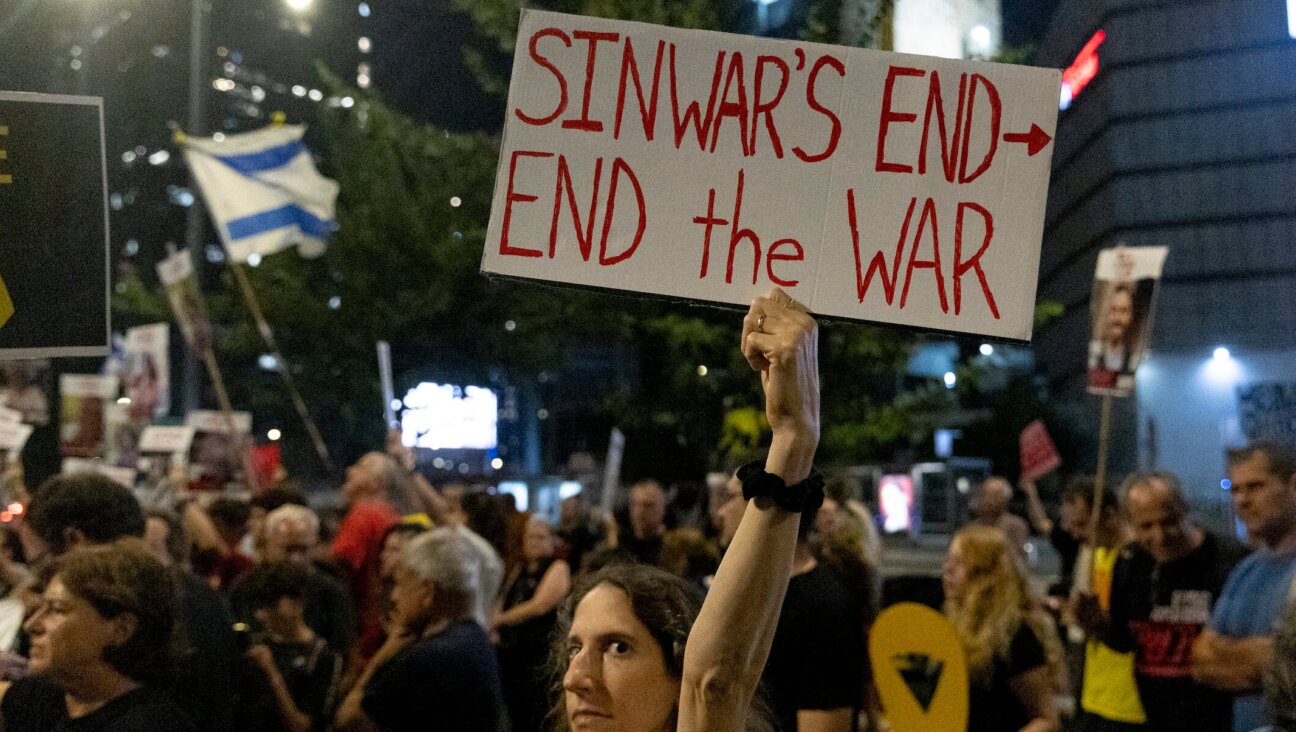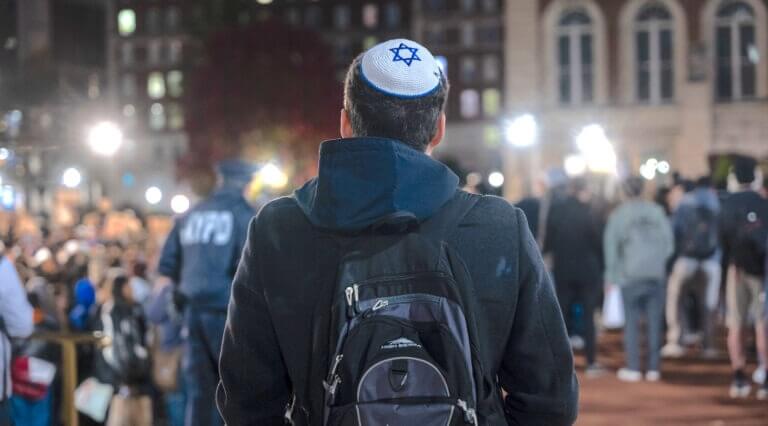Don’t Divorce the Mitzvah from Mikveh
At last Sunday’s conference of the Jewish Orthodox Feminist Alliance there was an interesting session titled “Rediscovering Mikvah: Creating a New Construct in Thinking about Mikvah.”
Given my increasingly ambivalent relationship to my own mikveh practice, I slipped away from all the sessions on Orthodox women and leadership that I needed to attend to for my coverage of this central issue, and went for some personal inspiration.
The session was run by Dr. Bat Sheva Marcus, an Orthodox Jew who is also a professional sex therapist, and featured Carrie Bornstein, the Mikveh Center director at Newton, Mass.’s Mayyim Hayyim Living Waters Community Mikveh and Education Center.
Mayyim Chayyim is a progressive place which sees it’s mandate as: “to reclaim and reinvent one of Judaism’s most ancient rituals — immersion in the mikveh — for contemporary spiritual use; to teach about this resource to all who are interested; and to make the mikveh a sacred space that is open and accessible to all Jews and those who are becoming Jews.“
In theory, a great concept. Now, a caveat: I have not personally immersed at Mayyim Hayyim, but I did attend a wonderful mikvah conference they ran a few years ago. They’re running another conference in October.
As a non-Orthodox Jew, I like the way Mayyim Hayyim reframes mikveh rituals. They have some lovely kavvanot, or intentions, available on their Web site here. Personally, I always take time after my immersion ritual, while still in the water, for personal prayer. I once heard somewhere that it is believed the heavens are open to us while we’re immersed in the mikveh, just as they are under the chuppah.
Part of Mayyim Hayyim’s focus is to make mikveh open to everyone in the community. Anyone who feels compelled to immerse in Judaism’s “living waters” should be able to do so, they believe.
But I disagree. Mikveh immersion is a commandment, an obligation, for married Jewish women and for converts, female and male, as their last step toward becoming Jewish.
At Mayyim Hayyim, like in some Chasidic communities, some men immerse before Shabbat and holidays. Rabbis, female and male, immerse on the eve of their ordinations, both men and women immerse as a way to mark personal milestones, and Bornstein talked about making it a ritual for girls as they prepare to become bat mitzvah.
I’m all for creating new rituals; I even wrote a book about one, “Celebrating Your New Jewish Daughter: Creating Jewish Ways to Welcome Baby Girls into the Covenant.” (Jewish Lights).
I’ve brought several friends for their first visits to the mikveh before their weddings. And I also once brought a long-married friend for her first visit, for her to mark the conclusion of the month after her mother’s death with the very intimate and woman-focused ritual of immersion.
But something about the “throw open the doors approach” makes me uneasy. Because it is a mitzvah, there is something holy about a woman immersing at the right time. And Bronya Shaffer, a Lubavitch hasid and educator who came to the JOFA conference from Crown Heights gently made the point, at the session, that you really can’t separate the ritual from the mitzvah.
She’s right, and helped me realize why I find something unsettling about the much-expanded notion of using the mikvah. The discussion is divorced from the mitzvah.
Why do I go to mikvah, despite my ambivalence about it and difficulty tolerating a mikveh attendant who is almost obsessed with scrubbing out any shadow of nail polish residue lurking under a cuticle? Not just because it ties me to Jewish women back through the generations. Not just because it affords me an hour of time to reflect as I bathe and prepare to immerse, or space to pray. I feel called to go to the mikveh because I feel commanded.
This is not to say that people who are not obligated by mitzvot may not or should not do them. As Marcus pointed out in a note to me, women are not obligated to lulav and etrog on Sukkot, or for that matter to dine in the sukkah, but of course we may and should.
I feel protective of mikveh, I guess, as the only mitzvah that can only be done by a woman, and of the mikveh as women’s space. While it’s said that women have three mitzvot — lighting Shabbat candles, separating/baking challah and mikvah immersion — the first two can be done by a man if no woman is available to do it. But immersion after the cycle that is uniquely female? Ladies only for that.
I like feeling that the small Brooklyn mikveh I patronize is women’s space (at least at night; men sometimes immerse during the day). I wouldn’t be thrilled to have tweenage girls there during those evenings. There are other ways — Torah study, even ear-piercing — to mark the transition between childhood and bat mitzvah.
But mikveh, I want to keep just for us.
The truth is, I rarely feel called by commandment. But this one reaches me. And when we lose sight of the commanded aspect of mikveh, I think we also lose sight of its spiritual power.
A message from our Publisher & CEO Rachel Fishman Feddersen

I hope you appreciated this article. Before you go, I’d like to ask you to please support the Forward’s award-winning, nonprofit journalism during this critical time.
We’ve set a goal to raise $260,000 by December 31. That’s an ambitious goal, but one that will give us the resources we need to invest in the high quality news, opinion, analysis and cultural coverage that isn’t available anywhere else.
If you feel inspired to make an impact, now is the time to give something back. Join us as a member at your most generous level.
— Rachel Fishman Feddersen, Publisher and CEO

























